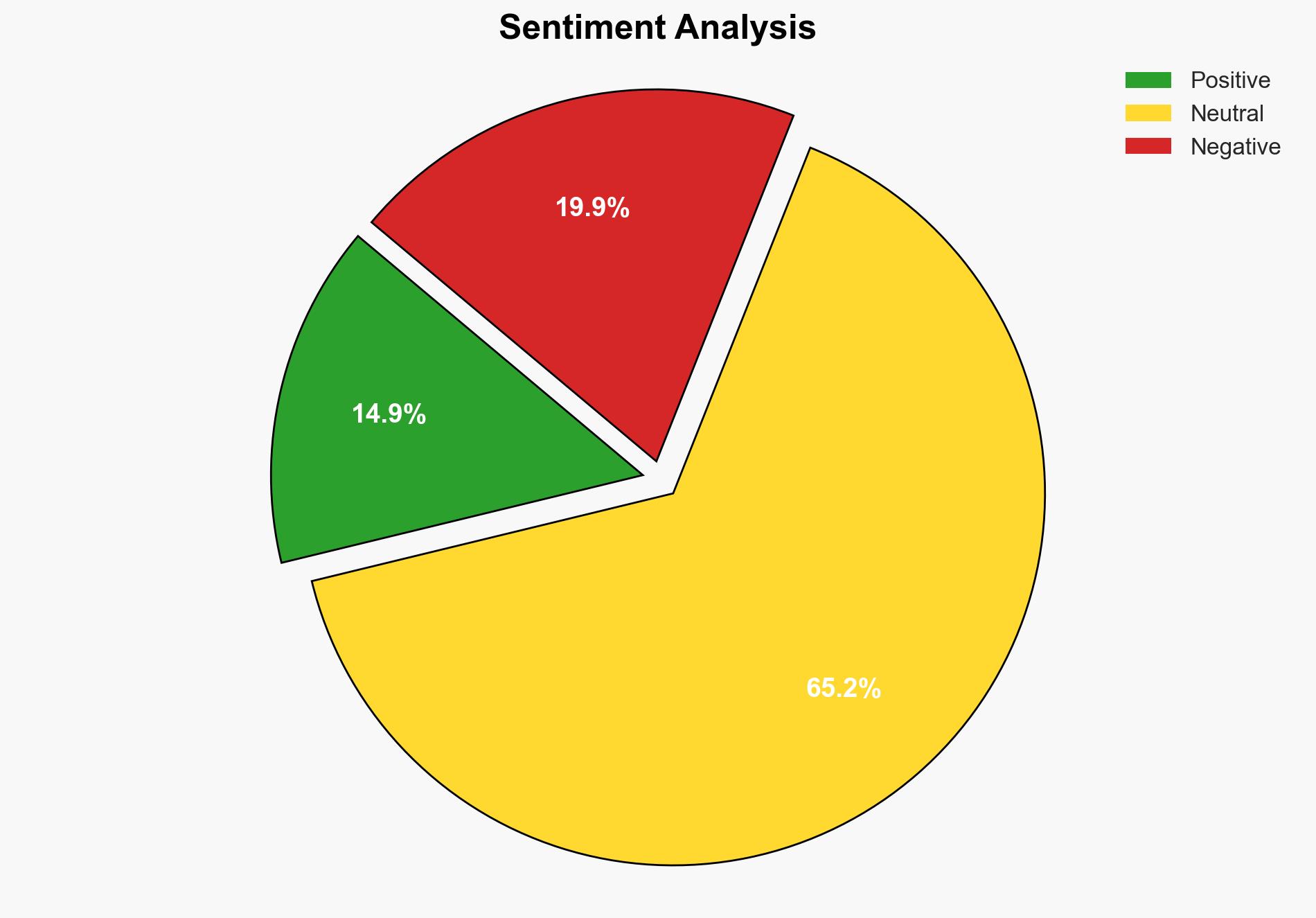Violence in Syria causes regional instability invites further Israeli provocations Iran – Globalsecurity.org
Published on: 2025-03-08
Intelligence Report: Violence in Syria causes regional instability invites further Israeli provocations Iran – Globalsecurity.org
1. BLUF (Bottom Line Up Front)
The ongoing violence and instability in Syria have heightened regional tensions, with significant implications for neighboring countries, particularly Israel and Iran. The Iranian foreign ministry has expressed grave concerns about the situation, warning that it could lead to further Israeli provocations. The situation necessitates immediate attention to prevent further destabilization and potential escalation of conflicts in the region.
2. Detailed Analysis
The following structured analytic techniques have been applied for this analysis:
SWOT Analysis
Strengths: Iran’s proactive monitoring of the situation and its call for regional stability.
Weaknesses: The fragmented political landscape in Syria and the presence of multiple armed factions.
Opportunities: Potential for diplomatic interventions to stabilize the region.
Threats: Escalating violence and potential for Israeli military actions.
Cross-Impact Matrix
The violence in Syria is likely to influence regional dynamics, potentially leading to increased Israeli military actions. This could further strain Iran-Israel relations and impact the broader Middle Eastern geopolitical landscape.
Scenario Generation
Best-case scenario: Diplomatic efforts lead to a ceasefire and stabilization in Syria.
Worst-case scenario: Intensified Israeli military actions result in broader regional conflict.
Most likely scenario: Continued instability with sporadic escalations in violence.
3. Implications and Strategic Risks
The instability in Syria poses significant risks to regional security and economic interests. The potential for Israeli military actions could lead to broader conflicts, impacting global oil markets and international relations. The situation also threatens humanitarian conditions, with potential increases in refugee flows and human rights violations.
4. Recommendations and Outlook
Recommendations:
- Encourage diplomatic dialogue between regional powers to de-escalate tensions.
- Enhance intelligence-sharing mechanisms to monitor developments and prevent further provocations.
- Support humanitarian efforts to assist affected populations and stabilize the region.
Outlook:
The situation in Syria is likely to remain volatile in the short term. While diplomatic efforts could lead to stabilization, the risk of escalation remains high. Stakeholders should prepare for potential fluctuations in regional security dynamics and economic impacts.
5. Key Individuals and Entities
The report mentions significant individuals and organizations, including Esmaeil Baghaei and the Syrian Observatory for Human Rights. These entities play crucial roles in monitoring and influencing the regional situation.





